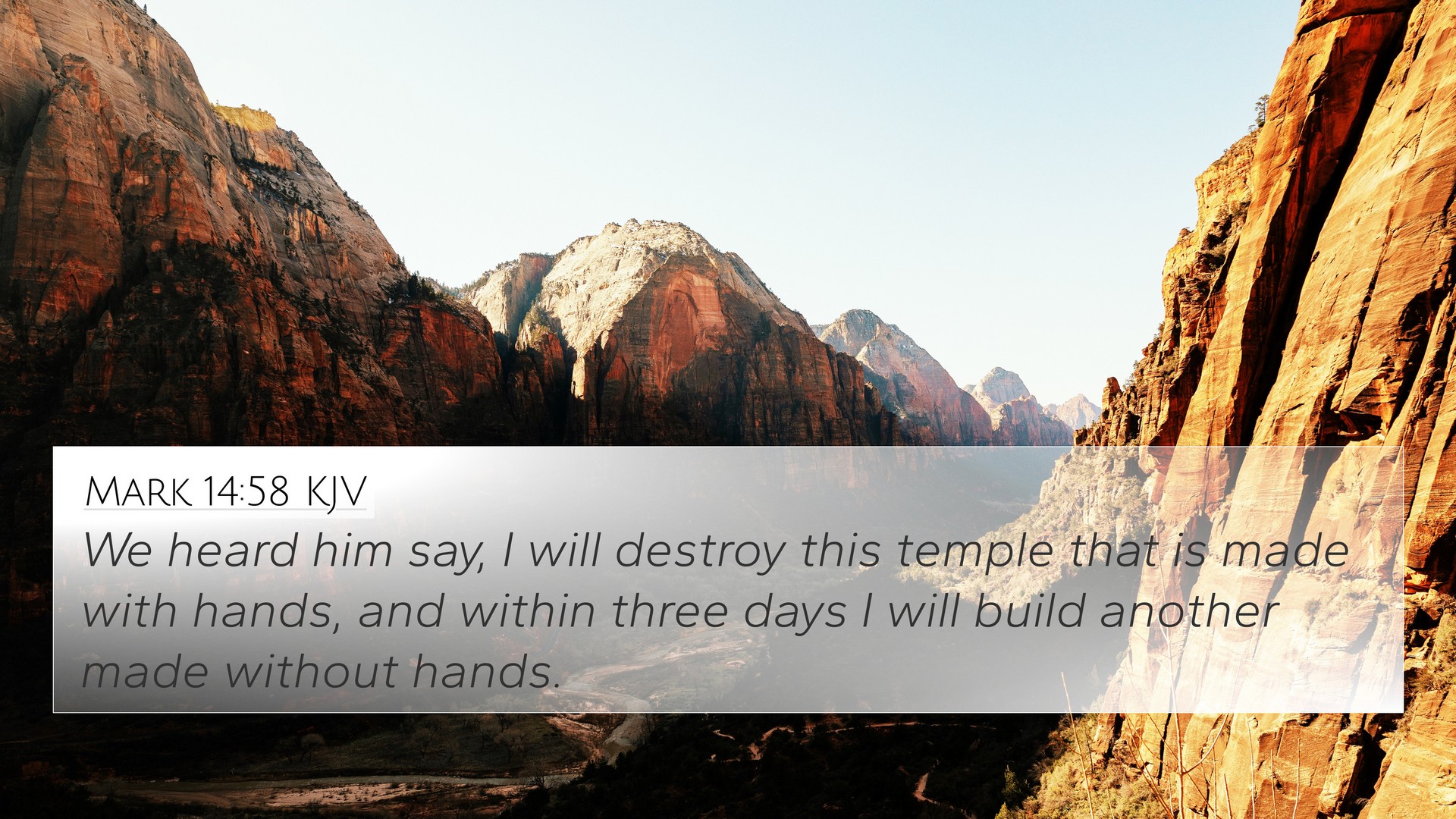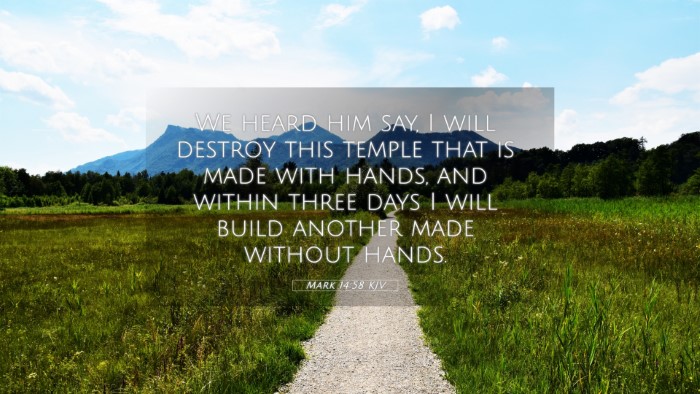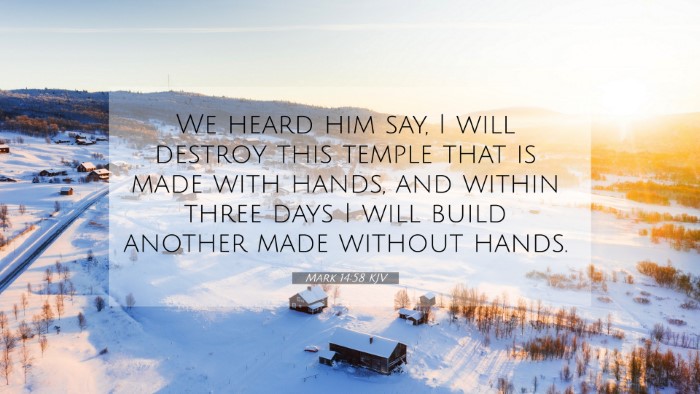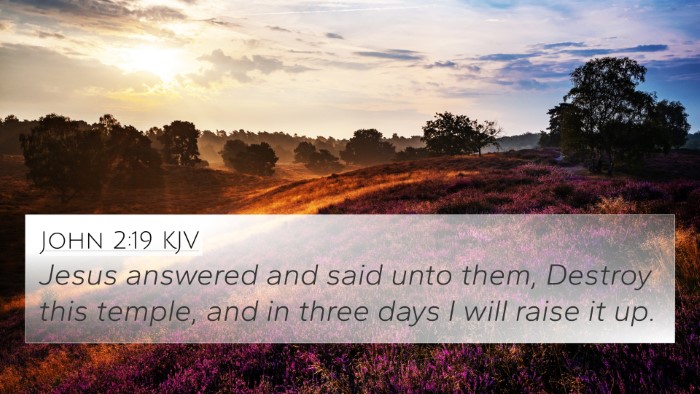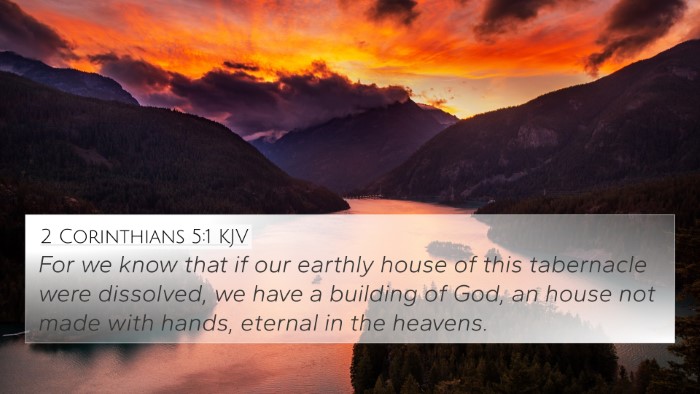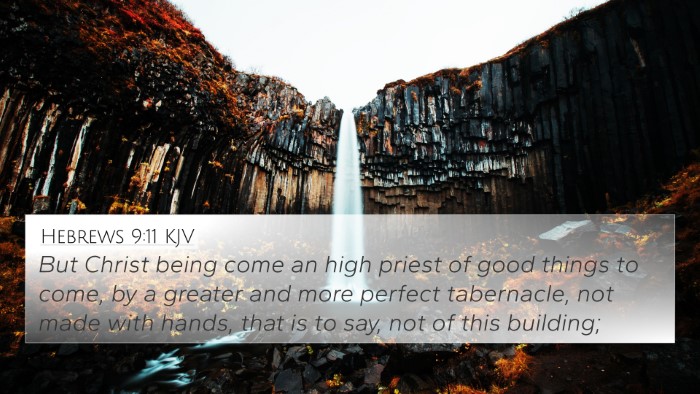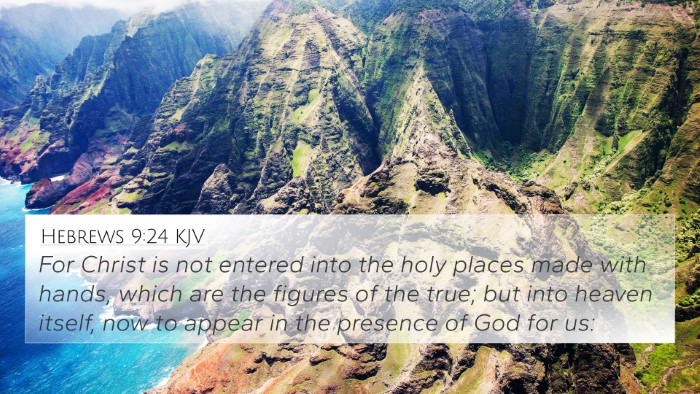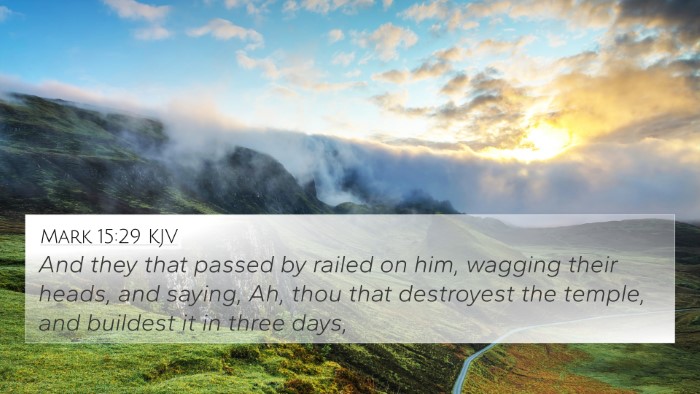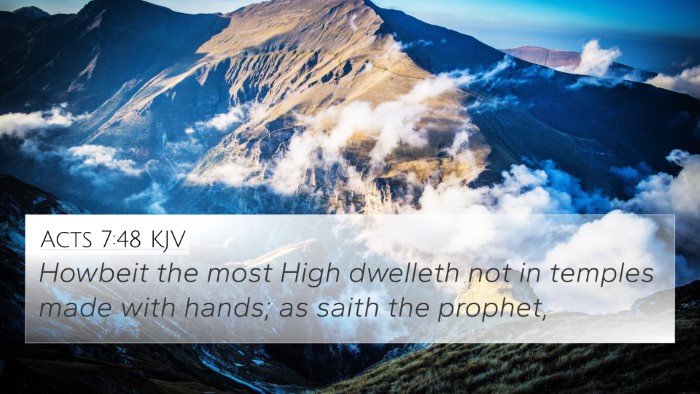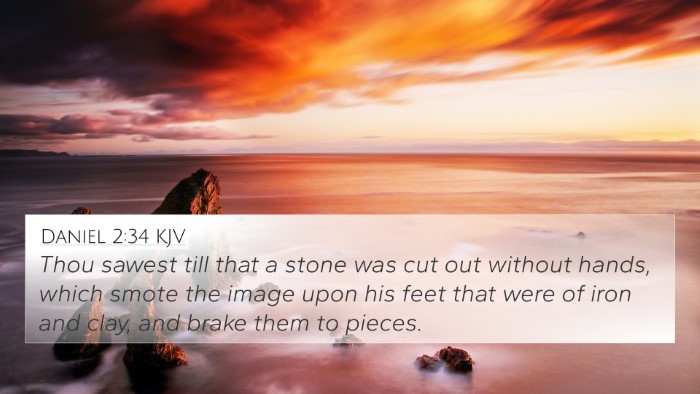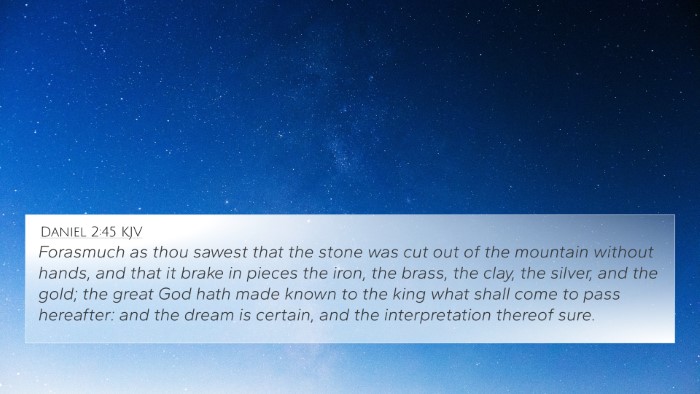Understanding Mark 14:58
Bible Verse: Mark 14:58 - “We heard him say, ‘I will destroy this temple made with hands, and within three days I will build another made without hands.’”
Verse Summary
Mark 14:58 records a statement made by witnesses during the trial of Jesus, alleging thatHe speaks of destroying the temple in Jerusalem, which refers to His body, rather than the physical structure itself. This verse holds significant implications for understanding the broader themes of Jesus' mission and the nature of the temple as a symbol in both Jewish and Christian faiths.
Commentary Insights
Matthew Henry’s Commentary
Henry notes that this statement made by Jesus indicates a profound truth about His identity and mission. The temple, as understood by the Jewish people, was central to their worship and national identity. By speaking of its destruction, Jesus pointed to the transitory nature of the old covenant and the coming of a new era, where true worship would occur in spirit and truth (as later reflected in John 4:24).
Albert Barnes’ Commentary
Barnes emphasizes that the accusation against Jesus was based on a misunderstanding of His words, as the witnesses misinterpreted Him. He highlights that Jesus, in saying He would build a temple made without hands, was indicating His resurrection and the establishment of a new spiritual temple comprised of believers. This ties into the themes of resurrection and new life, essential to the New Testament narrative.
Adam Clarke’s Commentary
Clarke elaborates on the implications of Jesus’ statement. He explains that Jesus was not advocating the literal destruction of the Jerusalem temple, but rather presenting Himself as the greater fulfillment of the temple’s significance. Clarke also makes connections to the prophetic declarations found in the Old Testament regarding the shift in God’s dwelling among His people—from a physical temple to the person of Christ.
Cross-Referencing Biblical Texts
Exploring this verse is enriched by examining various scripture connections. Here are 10 cross-references related to Mark 14:58:
- John 2:19 - Jesus speaks of destroying the temple and raising it in three days.
- Matthew 26:61 - Similar accusations are brought against Jesus regarding the temple.
- Acts 6:14 - False witnesses repeat the claims about Jesus’ words concerning the temple.
- 1 Corinthians 3:16 - Paul teaches that believers are the temple of God.
- Hebrews 9:11 - Jesus is presented as the high priest of good things to come, eclipsing the earthly temple.
- Luke 21:6 - Jesus foretells the destruction of the temple in Jerusalem.
- Revelation 21:22 - John sees no temple in the New Jerusalem, indicating the Lord and the Lamb are its temple.
- Isaiah 53:5 - Prophetic reference to the suffering servant, connecting to Jesus' mission.
- Jeremiah 7:14 - Themes of false security in the physical temple, parallel to how Jesus' ministry challenges such views.
- Malachi 3:1 - Prophecy about the messenger who will prepare the way for the Lord, linking to Jesus' transformative role as the temple.
Thematic Connections
This verse can be contextualized within several themes prevalent throughout scripture:
- Destruction and Rebuilding: Reflects the cyclical nature of humanity's relationship with God.
- Fulfillment of Prophecy: Jesus as the fulfillment of the Old Testament expectations of a coming Messiah.
- Transition from Old to New Covenant: Illustrates the shift in God's covenant relationship with humanity.
- Spiritual Worship: Emphasizes that true worship is no longer confined to a physical location.
Conclusion
Mark 14:58 serves not only as a pivotal moment in the passion narrative but also as a profound theological statement about the person of Christ and the nature of God's dwelling among His people. The interpretations from public domain commentaries highlight Jesus’ foresight into the transformation of worship from the physical temple to the incarnate and resurrected Christ, emphasizing the necessity for believers to understand their identity as spiritual temples. Engaging with related scriptures enhances our understanding of this verse and its fundamental implications for both Jewish and Christian faith.
